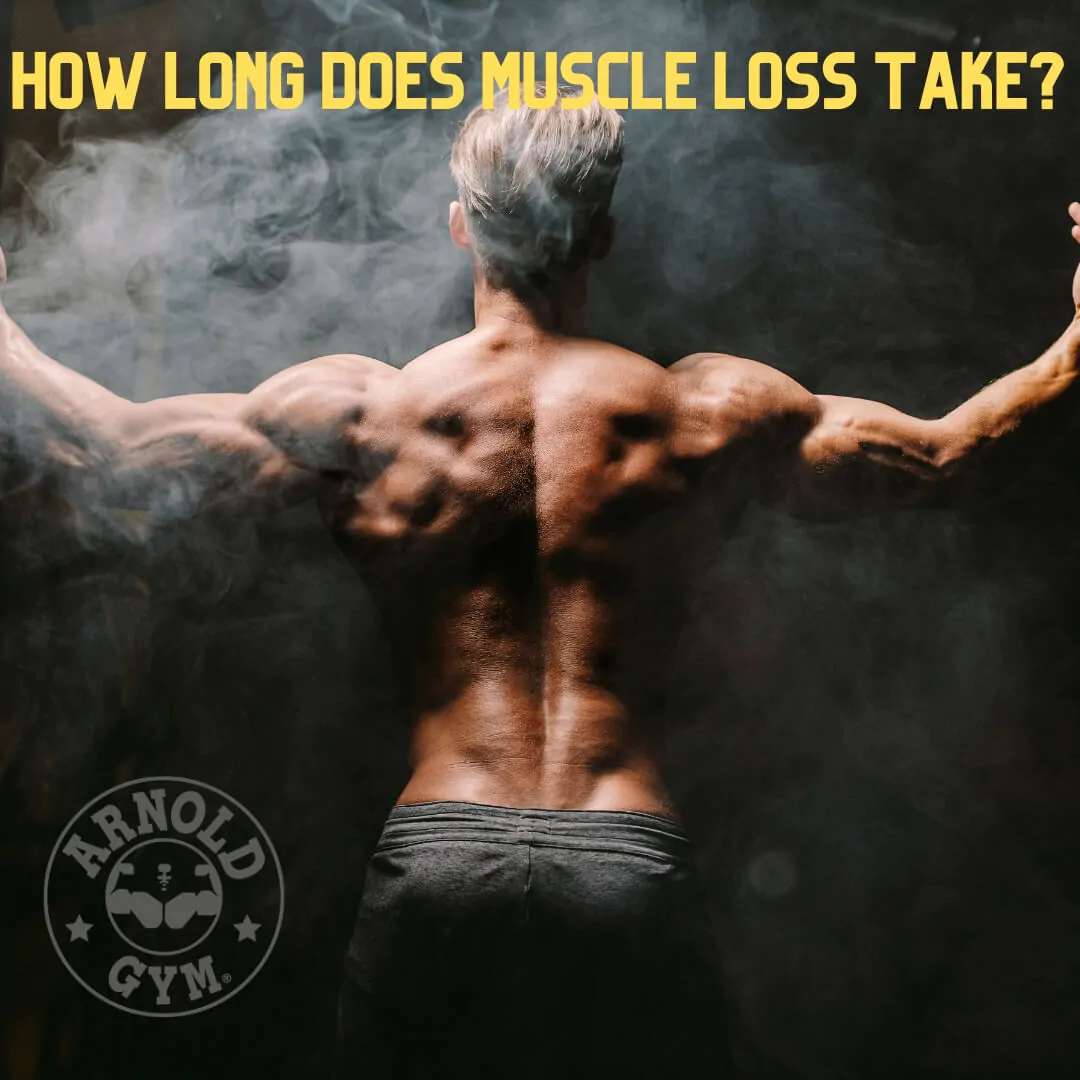Whether you’re new to fitness or have dedicated years to the sport, everyone has taken a break from bodybuilding for some reason. How long does it take to lose muscle, the fearful dream of those who take a break from sports?
Do you experience muscle loss when you don’t do sports for a few days? Will muscle loss occur even if you do not disrupt nutrition? The answer to all the questions you are curious about is in the rest of the article.
Taking a Fitness Break — How Many Days to Take a Break?
When you start fitness and do it for a while, you can make serious progress. Your muscles may start to define, swell, and look bigger. Having to take a break from this routine can also make you worry, and rightly so. But should you really be worried when you take a break?
Taking a few days off from fitness is actually good for you and will help you reach your goal in the long run.
On the other hand, taking a long break from sports means that you will start to lose muscle and especially your fitness. You should not take the term “muscle loss” here literally There is no such thing as muscle loss because your muscles are always with you. When you take a break from sports, they only shrink in volume. We will tell you more about this in the rest of the article.
A similar issue is burning fat without losing muscle. Everyone assumes that muscle will be lost during fat burning, but this is not necessarily true.
How Many Days Should I Take a Break from Sports?
Usually, you won’t lose too much strength if you take a break for three to four weeks, but you may start to lose fitness within a few days.
Decreased muscle strength after a break from sports
A 2013 study suggests that athletes who take a break from sports may start to lose muscle strength after about three weeks.
You can read the research here: https://pubmed.ncbi.nlm.nih.gov/23529287/
In general, even if you don’t exercise at all for three or four weeks, you won’t experience a noticeable decrease in muscle strength.
Is it Harmful to Take a Break from Sports for 1 Month?
A study looked at athletes who participated in a running marathon in 2016 and then tapered or quit the sport.
Each athlete was running an average of 50 KM per week, but they changed their routine and started running 5 KM. What was the result?
Exactly four weeks after this reduced routine, the runners’ Cardio fitness dropped significantly. The researchers noted that the runners would have experienced greater declines if they had stopped exercising altogether. Running an average of 5 KM per week helped them maintain a certain level of Cardio fitness.
You can read all the details about the research here: https://journals.physiology.org/doi/full/10.1152/japplphysiol.00911.2017
What should you make of this? If you are an athlete who has to cut back on your workouts due to time constraints or injury, exercising minimally can prevent you from losing all your Cardio fitness.
Is it harmful to take a break for 1 month? In terms of fitness, yes, you may experience a serious loss. However, you can minimize this loss by doing small exercises during the 1 month you take a break from sports.

Fitness and Cardio
Our bodies are good at maintaining overall strength. If you take a break from fitness for a few weeks, your muscle strength will not be negatively affected.
We know that skeletal muscle strength stays the same for a month without exercise. However, as mentioned above, athletes can start to lose muscle after three weeks of inactivity, but due to a phenomenon called muscle memory, you can regain muscle in just a few days or weeks.
You may be interested in What is Cardio and How to Do it?
You lose cardio fitness more quickly than muscle strength. Cardio conditioning starts to decline within a few days on average. Athletes who are new to cardio may find that after a four-week break, their conditioning approaches zero.
The Importance of Age and Gender in Muscle Loss
Your age and gender are also important factors that affect muscle loss. The older you get, the harder it is to maintain muscle mass and strength. Older athletes who take a break from sports experience a greater decline in fitness.
One study experimented with 2000 people, grouped into young and old. Both the young and the old groups followed the same training program and took the same amount of time off. At the end of the study, the older group lost strength twice as fast as the younger group.
The study found no significant difference in power loss between men and women in the same age groups. However, women lost all their savings during their break and returned to baseline.
How Long Does Muscle Loss Take?
There are hundreds of scientific studies on muscle loss, muscle memory, and so on. Each of these studies comes to similar conclusions. In conclusion, how long does it take to lose muscle? What should be done to avoid muscle loss?
If you are an athlete, muscle memory allows you to regain muscle strength and volume much faster. A long break from fitness will only lead to a decrease in fitness, but you can regain it in a short time.
Researchers have found that muscle growth is “remembered” by genes in the affected muscles. When you start exercising these muscles again, even after a long break, the genes respond faster than genes in previously unused muscles.
If you’re hesitant to take a break from fitness, it’s actually not something you need to worry about.
You may be interested in How Much Muscle Can You Build in A Month?
How much muscle loss you experience, how long it takes to recover, and so on are determined by several factors, and in general, a few days of not working out, or even a few weeks in most cases, will not seriously derail your progress.
If you need to reduce your exercise but not stop completely, even a minimal amount of strength or Cardio activity can prevent you from losing all your progress. For example, you can do HIIT Cardio for a few minutes every day.
You can read our article for more information. HIIT Cardio
Also to be confident, we recommend some fitness apparel tips:
- You should wear comfortable workout clothing that fits well.
- Your gym shorts should be comfortable and fit well.
- Depends on your exercise gym t-shirts can be made of cotton, polyester, or other materials.
- Your fitness underwear should be breathable, comfortable and supportive, a material that wicks sweat away from the body.
Remember: Wearing fitness apparel will make you feel good about yourself and get you into the gym. You can look great and feel great while working out.



